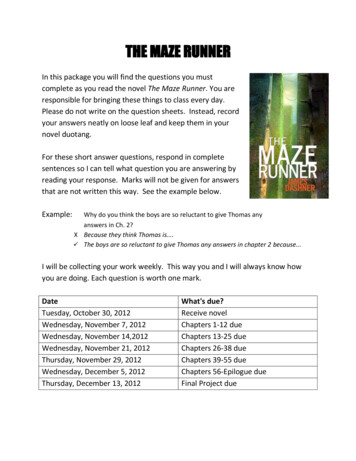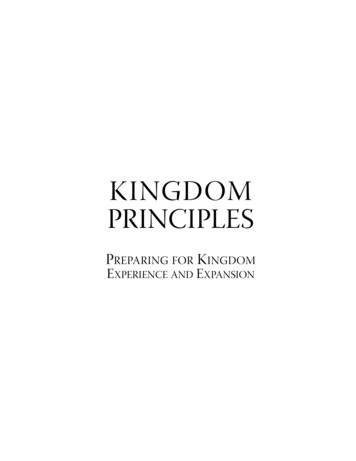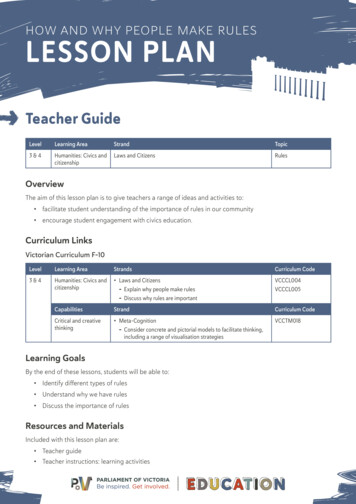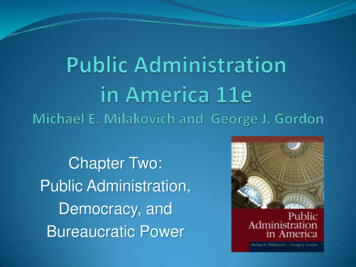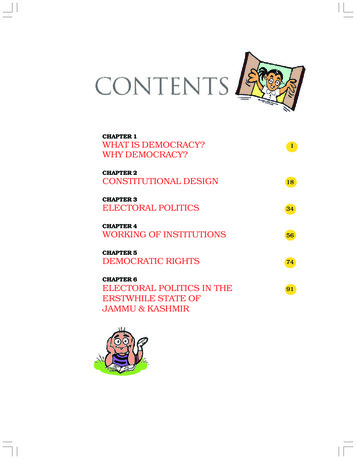
Transcription
CHAPTER 1WHAT IS DEMOCRACY?WHY DEMOCRACY?1CHAPTER 2CONSTITUTIONAL DESIGN18CHAPTER 3ELECTORAL POLITICS34CHAPTER 4WORKING OF INSTITUTIONS56CHAPTER 5DEMOCRATIC RIGHTS74CHAPTER 6ELECTORAL POLITICS IN THEERSTWHILE STATE OFJAMMU & KASHMIR91
CHAPTER 1What isDemocracy?WhyDemocracy?OVERVIEWWhat is democracy? What are its features? This chapter builds on a simpledefinition of democracy. Step by step, we work out the meaning of theterms involved in this definition. The aim here is to understand clearly thebare minimum features of a democratic form of government. After goingthrough this chapter we should be able to distinguish a democratic formof government from a non-democratic government. Towards the end ofthis chapter, we step beyond this minimal objective and introduce a broaderidea of democracy.Democracy is the most prevalent form of government in the world todayand it is expanding to more countries. But why is it so? What makes itbetter than other forms of government? That is the second big questionthat we take up in this chapter.
1.1 WHATISDEMOCRACY?You have already read about differentforms of government. On the basis ofyour understanding of democracyso far, mentioning a few exampleswrite down some common features of: Democratic governments Non-democratic governmentsWhy define democracy?Before we proceed further, let usfirst take note of an objection byMerry. She does not like this wayof defining democracy and wantsto ask some basic questions.Her teacher Matilda Lyngdohresponds to her questions, as otherclassmates join the discussion:Merry: Ma’am, I don’t like this idea. First we spendtime discussing democracy and then we wantto find out the meaning of democracy. I meanlogically shouldn’t we have approached it theother way round? Shouldn’t the meaning havecome first and then the example?Lyngdoh Madam: I can see your point. But that isnot how we reason in everyday life. We usewords like pen, rain or love. Do we wait to havea definition of these words before we use them?Come to think of it, do we have clear definitionof these words? It is only by using a word thatwe understand its meaning.Merry: But then why do we need definitions at all?Lyngdoh Madam: We need a definition only whenwe come across a difficulty in the use of a word.We need a definition of rain only when we wish todistinguish it from, say, drizzle or cloudburst. Thesame is true for democracy. We need a cleardefinition only because people use it for differentpurposes, because very different kinds of governments call themselves democracy.Ribiang: But why do we need to work on a definition? The other day you quoted AbrahamLincoln to us: “Democracy is government ofthe people, by the people and for the people”.We in Meghalaya always ruled ourselves. Thatis accepted by everyone. Why do we need tochange that?Lyngdoh Madam: I am not saying we need tochange it. I too find this definition very beautiful.2But we don’t know if this is the best way ofdefining unless we think about it ourselves. Wemust not accept something just because it isfamous, just because everyone accepts it.Yolanda: Ma’am, can I suggest something? We don’tneed to look for any definition. I read somewherethat the word democracy comes from a Greekword ‘Demokratia’. In Greek ‘demos’ meanspeople and ‘kratia’ means rule. So democracy isrule by the people. This is the correct meaning.Where is the need to debate?Lyngdoh Madam: That is also a very helpful wayof thinking about this matter. I would just saythat this does not always work. A word does notremain tied to its origin. Just think of computers.Originally they were used for computing, that is tosay calculating, very difficult mathematical sums.These were very powerful calculators. But nowadays very few people use computers for computing sums. They use it for writing, for designing, forlistening to music and for watching films. Wordsremain the same but their meaning can changewith time. In that case it is not very useful to lookat the origins of a word.Merry: Ma’am, so basically what you are sayingis that there is no shortcut to our thinking aboutthe matter ourselves. We have to think about itsmeaning and evolve a definition.Lyngdoh Madam: You got me right. Let us get onwith it now.A C T I V I T YLet us take Lyngdoh Madam seriously and try towrite down the exact definition of some of thesimple words that we use all the time: pen, rainand love. For example, is there a way of defining apen that distinguishes it clearly from a pencil, abrush, a chalk or crayon. What have you learnt from this attempt? What does it teach us about understanding themeaning of democracy?A simple definitionLet us get back to our discussion onsimilarities and differences amonggovernments that are calledDEMOCRATIC POLITICSI have heard adifferent version.Democracy is offthe people, far(from) the peopleand (where they)buy the people.Why don’t weaccept that?
democracies. One simple factorcommon to all democracies is: thegovernment is chosen by the people.We could thus start with a simpledefinition: democracy is a form ofgovernment in which the rulers areelected by the people.This is a useful starting point. Thisdefinition allows us to separatedemocracy from forms of governmentthat are clearly not democratic. Thearmy rulers of Myanmar were notelected by the people. Those whohappened to be in control of the armybecame the rulers of the country.People had no say in this decision.Dictators like Pinochet (Chile) are notelected by the people. This alsoapplies to monarchies. The kings ofSaudi Arabia rule not because thepeople have chosen them to do so butRibiang went back home and collected some more famous quotations on democracy. This time shedid not mention the names of the people who said or wrote these. She wants you to read these andcomment on how good or useful these thoughts are: Democracy gives every man the right to be his own oppressor. Democracy consists of choosing your dictators after they’ve told you what you think it is you wantto hear. Man’s capacity for justice makes democracy possible, but man’s inclination to injustice makesdemocracy necessary Democracy is a device that insures we shall be governed no better than we deserve. All the ills of democracy can be cured by more democracy.This cartoon wasdrawn when electionswere held in Iraq withthe presence of USand other foreignpowers. What do youthink this cartoon issaying? Why is‘democracy’ writtenthe way it is? Stephane Peray, Thailand, Cagle Cartoons Inc.CHECKYOURPROGRESSreadthecartoonbecause they happen to be born intothe royal family.This simple definition is notadequate. It reminds us thatdemocracy is people’s rule. But if weuse this definition in an unthinkingmanner, we would end up callingalmost every government that holdsan election a democracy. That wouldbe very misleading. As we shall findout in Chapter 3, every governmentin contemporary world wants to becalled a democracy, even if it is notso. That is why we need to carefullydistinguish between a governmentthat is a democracy and one thatpretends to be one. We can do so byunderstanding each word in thisdefinition carefully and spelling outthe features of a democraticgovernment.WHATISDEMOCRACY? WHY DEMOCRACY?3
1.2 FEATURESOF DEMOCRACYWe have started with a simpledefinition that democracy is a formof government in which the rulersare elected by the people. Thisraises many questions: Who are the rulers in thisdefinition? Which officials mustbe elected for any government tobe called a democracy? Whichdecisions may be taken by nonelected officials in a democracy? What kind of election constitutesa democratic election? Whatconditions must be fulfilled for anelection to be considereddemocratic? Who are the people who can electthe rulers or get elected as rulers?Should this include every citizen onan equal basis? Can a democracydeny some citizens this right? Finally, what kind of a form ofgovernment is democracy? Canelected rulers do whatever theywant in a democracy? Or must ademocratic government functionwith some limits? Is it necessaryfor a democracy to respect somerights of the citizens?Let us consider each of thesequestions with the help of someexamples.Major decisions by electedleadersIn Pakistan, General PervezMusharraf led a military coup inOctober 1999. He overthrew ademocratically elected governmentand declared himself the ‘ChiefExecutive’ of the country. Later hechanged his designation to Presidentand in 2002 held a referendum inthe country that granted him a fiveyear extension. Pakistani media,human rights organisations anddemocracy activists said that thereferendum was based on Emad Hajjaj, Jordan, Cagle Cartoons Inc. 7 June 2005readthecartoon4DEMOCRATIC POLITICSSyria is a small westAsian country. Theruling Ba’ath Partyand some of its smallallies are the onlyparties allowed in thatcountry. Do you thinkthis cartoon couldapply to China orMexico? What doesthe crown of leaveson democracysignify?
This cartoon wasdrawn in the contextof Latin America. Doyou think it applies tothe Pakistani situationas well? Think ofother countries wherethis could apply?Does this happensometimes in ourcountry as well?All this is so remotefor me. Isdemocracy allabout rulers andgovernments? Canwe talk about ademocraticclassroom? Or ademocratic family? Ares, Caglecartoon.com, Cagle Cartoons Inc. 22 January 2005readthecartoonrulers. They cannot take the finaldecisions. The power to take finaldecision rested with army officialsand with General Musharraf, andnone of them were elected by thepeople. This happens in manydictatorships and monarchies. Theyformally have an elected parliamentand government but the real poweris with those who are not elected.In a few countries, the real powerwas with some external powers andnotwithlocallyelectedrepresentatives. This cannot becalled people’s rule.This gives us the first feature. In ademocracy the final decisionmaking power must rest with thoseelected by the people.malpractices and fraud. In August2002 he issued a ‘Legal FrameworkOrder’thatamendedtheConstitution of Pakistan. Accordingto this Order, the President candismiss the national and provincialassemblies. The work of the civiliancabinet is supervised by a NationalSecurity Council which isdominated by military officers. Afterpassing this law, elections wereheld to the national and provincialassemblies. So Pakistan has hadelections, elected representativeshave some powers. But the finalpower rested with military officersand General Musharraf himself.Clearly, there are many reasonswhy Pakistan under GeneralMusharraf should not be called ademocracy. But let us focus on oneof these. Can we say that the rulersare elected by the people inPakistan? Not quite. People mayhave elected their representatives tothe national and provincialassemblies but those electedrepresentatives were not really theWHATISDEMOCRACY? WHY DEMOCRACY?Free and fair electoralcompetitionIn China, elections are regularlyheld after every five years forelecting the country’s parliament,called Quanguo Renmin DaibiaoDahui (National People’s Congress).The National People’s Congress hasthe power to appoint the Presidentof the country. It has nearly 3,000members elected from all overChina. Some members are electedby the army. Before contestingelections, a candidate needs theapproval of the Chinese CommunistParty. Only those who are membersof the Chinese Communist Party oreight smaller parties allied to it wereallowed to contest elections held in2002-03. The government is alwaysformed by the Communist Party.Since its independence in 1930,Mexico holds elections after everysix years to elect its President. Thecountry has never been under amilitary or dictator’s rule. But until2000 every election was won by a5
6 Nerilicon, El Economista , Mexico, Cagle Cartoons Inc.17 May 2005party called PRI (InstitutionalRevolutionary Party). Oppositionparties did contest elections, butnever managed to win. The PRI wasknown to use many dirty tricks towin elections. All those who wereemployed in government officeshad to attend its party meetings.Teachers of government schoolsused to force parents to vote for thePRI. Media largely ignored theactivities of opposition politicalparties except to criticise them.Sometimes the polling booths wereshifted from one place to another inthe last minute, which made itdifficult for people to cast their votes.The PRI spent a large sum of moneyin the campaign for its candidates.Should we consider the electionsdescribed above as examples ofpeople electing their rulers? Readingthese examples we get a sense thatwe cannot. There are many problemshere. In China the elections do notoffer the people any serious choice.They have to choose the ruling partyand the candidates approved by it.Can we call this a choice? In theMexican example, people seemed toreally have a choice but in practicethey had no choice. There was noway the ruling party could bedefeated, even if people were againstit. These are not fair elections.We can thus add a second featureto our understanding of democracy.Holding elections of any kind is notsufficient. The elections must offera real choice between politicalalternatives. And it should bepossible for people to use this choiceto remove the existing rulers, if theywish so. So, a democracy must bebased on a free and fair electionwhere those currently in powerhave a fair chance of losing. Weshall find out more about ademocratic election in Chapter 3.readthecartoonThis cartoon wastitled ‘BuildingDemocracy’ and wasfirst published in aLatin Americanpublication. What domoneybags signifyhere? Could thiscartoon be applied toIndia?One person, o n e vvoo ttee ,one valueEarlier, we read about how the strugglefor democracy was linked to thedemand for universal adult franchise.This principle has now come to beaccepted almost all over the world. Yetthere are many instances of denial ofequal right to vote. Until 2015, in Saudi Arabia womendid not have the right to vote. Estonia has made its citizenshiprules in such a way that peoplebelonging to Russian minorityfind it difficult to get the right tovote. In Fiji, the electoral system issuch that the vote of anindigenous Fiji has more valuethan that of an Indian-Fijian.Democracy is based on afundamental principle of politicalequality. That gives us the thirdfeature of democracy: in ademocracy, each adult citizen musthave one vote and each vote musthave one value. We shall read moreabout it in Chapter 3.DEMOCRATIC POLITICS
This cartoon is aboutthe Iraqi election heldafter SaddamHussein’s regime wasoverthrown. He isshown behind thebars. What is thecartoonist sayinghere? Compare themessage of thiscartoon with the firstcartoon in thischapter. John Trever, Albuquerque Journal, US, Cagle Cartoons Inc.readthecartoonR ule of law a n d rree s p eecc tlawfor rightsWhy talk aboutZimbabwe? I readsimilar reports frommany parts of ourown country. Whydon’t we discussthat?Zimbabwe attained independencefrom White minority rule in 1980.Since then the country has beenruled by ZANU-PF, the party that ledthe freedom struggle. Its leader,Robert Mugabe, ruled the countrysince independence. Elections wereheld regularly and always won byZANU-PF. President Mugabe waspopular but also used unfair practicesin elections. Over the years hisgovernment changed the constitutionseveral times to increase the powersof the President and make him lessaccountable. Opposition partyworkers were harassed and theirmeeting disrupted. Public protestsand demonstrations against thegovernment were declared illegal.There was a law that limited the rightto criticise the President. Televisionand radio were controlled by thegovernment and gave only theruling party’s version. There wereindependent newspapers but theWHATISDEMOCRACY? WHY DEMOCRACY?governmentharassedthosejournalists who went against it. Thegovernment ignored some courtjudgments that went against it andpressurised judges. He was forcedout of office in 2017.The example of Zimbabwe showsthat popular approval of the rulers isnecessary in a democracy, but it isnot sufficient. Popular governmentscan be undemocratic. Popular leaderscan be autocratic. If we wish to assessa democracy, it is important to lookat the elections. But it is equallyimportant to look before and after theelections. There should be sufficientroom for normal political activity,including political opposition, in theperiod before elections. This requiresthat the state should respect somebasic rights of the citizen. They shouldbe free to think, to have opinions, toexpress these in public, to formassociations, to protest and take otherpolitical actions. Everyone should beequal in the eyes of law. These rightsmust be protected by an independent7
Eric Allie, Pioneer Press, US, Cagle Cartoons Inc., 27 February 2006judiciary whose orders are obeyed byeveryone. We shall read more aboutthese rights in Chapter 5.Similarly, there are some conditionsthat apply to the way a governmentis run after the elections. Ademocratic government cannot dowhatever it likes, simply because ithas won an election. It has to respectsome basic rules. In particular it hasto respect some guarantees to theminorities. Every major decision hasto go through a series ofconsultations. Every office bearer hascertain rights and responsibilitiesassigned by the constitution and thelaw. Each of these is accountable notonly to the people but also to otherindependent officials. We shall readmore about this in Chapter 4.Both these aspects give us the fourthand final feature of democracy:a democratic government ruleswithin limits set by constitutionallaw and citizens’ rights.8S u m m a rryy d e ffii n i t i o nLet us sum up the discussion so far.We started with a simple definitionthat democracy is a form ofgovernment in which the rulers areelected by the people. We found thatthis definition was not adequateunless we explained some of the keywords used in it. Through a series ofexamples we worked out four featuresof democracy as a form ofgovernment. Accordingly, democracyis a form of government in which: Rulers elected by the people takeall the major decisions; Elections offer a choice and fairopportunity to the people tochange the current rulers; This choice and opportunity isavailable to all the people on anequal basis; and The exercise of this choice leadsto a government limited by basicrules of the constitution andcitizens’ rights.DEMOCRATIC POLITICSreadthecartoonChinese governmentblocked free flow ofinformation on theinternet by placingrestrictions on popularwebsites like ‘Google’and ‘Yahoo’. Theimage of tanks and anunarmed studentreminds the reader ofanother major event inrecent Chinesehistory. Find out aboutthat event.
Read these five examples of working or denial of democracy. Match each of these with the relevantfeature of democracy discussed above.CHECKYOURPROGRESSExampleFeatureKing of Bhutan has declared that in future he will beguided by the advice given to him by elected representatives.Respect for RightsMany Tamil workers who migrated from India werenot given a right to vote in Sri Lanka.The king imposed a ban on political gatherings,demonstrations and rallies.The Indian Supreme Court held that the dissolution ofBihar assembly was unconstitutional.Political parties in Bangladesh have agreed that a neutralgovernment should rule the country at the time of elections.1.3 WHYDebating merits ofd e m o c rraa c yYolanda: We live in a democratic country. All overthe world people want democracy. Countries thatwere not democratic earlier are becoming democratic now. All great people have said nice thingsabout democracy. Isn’t it obvious that democracyis the best? Do we need to debate this?Tangkini: But Lyngdoh Madam had said we shouldnot accept something just because it is famous,just because everyone else accepts it. Isn’t itpossible that everyone is following a wrongpath?Jeni: Yes, it actually is a wrong path. What hasdemocracy brought to our country? Sevendecades of democracy and there is so muchpoverty in the country.Ribiang: But what has democracy got to do withit? Do we have poverty because we are democratic or do we have poverty despite being ademocracy?WHATISOne person one voteone valueFree and fairelectoral competitionMajor decisions byelected leadersDEMOCRACY?An argument broke out in MadamLyngdoh’s class. She had finishedteaching the previous section onwhat is democracy and asked thestudents if they thought democracywas the best form of government.Everyone had something to say.I want to be inLyngdoh Madam’sclass! That soundslike a democraticclassroom.Doesn’t it?Rule of lawDEMOCRACY? WHY DEMOCRACY?Jeni: Whatever, how does it make a difference?The point is that this can’t be the best form ofgovernment. Democracy is all about chaos, instability, corruption and hypocrisy. Politiciansfight among themselves. Who cares for the country?Poimon: So, what should we have instead? Goback to the British rule? Invite some kings torule this country?Rose: I don’t know. I think what this country needsis a strong leader, someone who does not haveto bother about elections and parliament. Oneleader should have all the powers. He shouldbe able to do whatever is needed in country’sinterest. That alone can remove corruption andpoverty from this country.Someone shouted: That is called dictatorship!Hoi: What if that person starts using all these powers for himself and his family? What if he iscorrupt himself?Rose: I am speaking only of the honest, sincereand strong leader.Hoi: But that is not fair. You are comparing a realdemocracy with an ideal dictatorship.We should compare an ideal with an ideal, thereal with the real. Go and check the record ofdictators in real life. They are most corrupt, selfish and brutal. It is just that we don’t get to knowabout this. And what is worse, you can’t evenget rid of them.9
Arguments against democracyThis conversation has most of thearguments that we routinely hearagainst democracy. Let us go oversome of these arguments: Leaders keep changing in ademocracy. This leads to instability. Democracy is all about politicalcompetition and power play. Thereis no scope for morality. So many people have to beconsulted in a democracy that itleads to delays. Elected leaders do not know thebest interest of the people. It leadsto bad decisions. Democracy leads to corruption forit is based on electoral competition. Ordinary people don’t know whatis good for them; they should notdecide anything.Are there some other argumentsagainst democracy that you canthink of? Which of these argumentsapplies mainly to democracy? Whichof these can apply to misuse of anyform of government? Which of thesedo you agree with?Clearly, democracy is not amagical solution for all theproblems. It has not ended povertyin our country and in other parts ofthe world. Democracy as a form ofgovernment only ensures that10people take their own decisions.This does not guarantee that theirdecisions will be good. People canmake mistakes. Involving the peoplein these decisions does leadto delays in decision making. Itis also true that democracy leadsto frequent changes in leadership.Sometimes this can set backbig decisions and affect thegovernment’s efficiency.These arguments show thatdemocracy of the kind we see maynot be the ideal form of government.But that is not a question we face inreal life. The real question we faceis different: is democracy better thanother forms of government that arethere for us to choose from?Arguments for democracyChina’s famine of 1958-1961 wasthe worst recorded famine in worldhistory. Nearly three crore peopledied in this famine. During thosedays, India’s economic conditionwas not much better than China. YetIndia did not have a famine of thekind China had. Economists thinkThis cartoon is fromBrazil, a country thathas long experienceof dictatorship. It isentitled “The HiddenSide of Dictatorship”.Which hidden sidesdoes this cartoondepict? Is itnecessary for everydictatorship to have ahidden side? Ifpossible, find this outabout the dictatorsincluding Pinochet inChile, Jaruzelski inPoland, Sani Abachain Nigeria andFerdinand Marcos inthe Philippines.readthecartoon Osmani Simanca, Brazil,Cagle Cartoons Inc. 6 December 2004Madam Lyngdoh was listening tothis discussion with interest. Nowshe stepped in: “I was delighted tosee you all arguing so passionately.I don’t know who is right and whois wrong. That is for you to settle.But I did feel that you all wanted tospeak your mind. You may have feltvery bad if someone tried to stop youor if someone punished you forsaying what you felt. Would you beable to do that in a country that isnot democratic? Is that a goodargument for democracy?”DEMOCRATIC POLITICS
What would havehappened if Indiawas not ademocracy?Could we havestayed together asa single nation?that this was a result of differentgovernment policies in the twocountries. The existence ofdemocracy in India made theIndian government respond to foodscarcity in a way that the Chinesegovernment did not. They point outthat no large-scale famine has evertaken place in an independent anddemocratic country. If China too hadmultiparty elections, an oppositionparty and a press free to criticise thegovernment, then so many peoplemay not have died in the famine.This example brings out one of thereasons why democracy is consideredthe best form of government.Democracy is better than any otherform of government in responding tothe needs of the people. A nondemocratic government may and canrespond to the people’s needs, but itall depends on the wishes of thepeople who rule. If the rulers don’twant to, they don’t have to actaccording to the wishes of the people.A democracy requires that the rulershave to attend to the needs of thepeople. A democratic government isa better government because it is amore accountable form ofgovernment.There is another reason whydemocracy should lead to betterdecisions than any non-democraticgovernment. Democracy is based onconsultation and discussion. Ademocratic decision always involvesmany persons, discussions andmeetings. When a number of peopleput their heads together, they areable to point out possible mistakesin any decision. This takes time. Butthere is a big advantage in takingtime over important decisions. Thisreduces the chances of rash orirresponsible decisions. Thusdemocracy improves the qualityof decision-making.WHATISDEMOCRACY? WHY DEMOCRACY?This is related to the thirdargument. Democracy provides amethod to deal with differencesand conflicts. In any society peopleare bound to have differences ofopinions and interests. Thesedifferences are particularly sharp ina country like ours which has anamazing social diversity. Peoplebelong to different regions, speakdifferent languages, practisedifferent religions and have differentcastes. They look at the world verydifferently and have differentpreferences. The preferences of onegroup can clash with those of othergroups. How do we resolve such aconflict? The conflict can be solvedby brutal power. Whichever groupis more powerful will dictate itsterms and others will have to acceptthat. But that would lead toresentment and unhappiness.Different groups may not be able tolive together for long in such a way.Democracy provides the onlypeaceful solution to this problem. Indemocracy, no one is a permanentwinner. No one is a permanent loser.Different groups can live with oneanother peacefully. In a diversecountry like India, democracy keepsour country together.These three arguments were aboutthe effects of democracy on thequality of government and social life.But the strongest argument fordemocracy is not about whatdemocracy does to the government.It is about what democracy does tothe citizens. Even if democracy doesnot bring about better decisions andaccountable government, it is stillbetter than other forms ofgovernment. Democracy enhancesthe dignity of citizens. As wediscussed above, democracy isbased on the principle of politicalequality, on recognising that the11
the rulers have to change theirdecisions, or the rulers can bechanged. This cannot happen in anon-democratic government.Let us sum it up. Democracycannot get us everything and is notthe solution to all problems. But itis clearly better than any otheralternative that we know. It offersbetter chances of a good decision,it is likely to respect people’s ownwishes and allows different kinds ofpeople to live together. Even whenit fails to do some of these things, itallows a way of correcting itsmistakes and offers more dignity toall citizens. That is why democracyis considered the best form ofgovernment. Cam Cardow, The Ottawa Citizen, Canada, Cagle Cartoons Inc. 30 May 2004.poorest and the least educated hasthe same status as the rich and theeducated. People are not subjects ofa ruler, they are the rulersthemselves. Even when they makemistakes, they are responsible fortheir conduct.Finally, democracy is better thanother forms of government becauseit allows us to correct its ownmistakes. As we saw above, there isno guarantee that mistakes cannotbe made in democracy. No form ofgovernment can guarantee that. Theadvantage in a democracy is thatsuch mistakes cannot be hidden forlong. There is a space for publicdiscussion on these mistakes. Andthere is a room for correction. EitherRajesh and Muzaffar read an article. It showed that no democracy has ever gone to war with anotherdemocracy. Wars take place only when one of the two governments is non-democratic. The article saidthat this was a great merit of democracy. After reading the essay, Rajesh and Muzaffar had differentreactions. Rajesh said that this was not a good argument for democracy. It was just a matter of chance.It is possible that in future democracies may have wars. Muzaffar said that it could not be a matter ofchance. Democracies take decisions in such a way that it reduces the chances of war. Which of the twopositions do you agree with and why?12DEMOCRATIC POLITICSThis cartoon waspublished in C
need to look for any definition. I read somewhere that the word democracy comes from a Greek word 'Demokratia'. In Greek 'demos' means people and 'kratia' means rule. So democracy is rule by the people. This is the correct meaning. Where is the need to debate? Lyngdoh Madam: That is also a very helpful way of thinking about this matter.
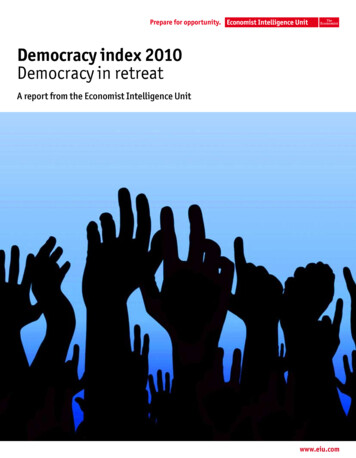

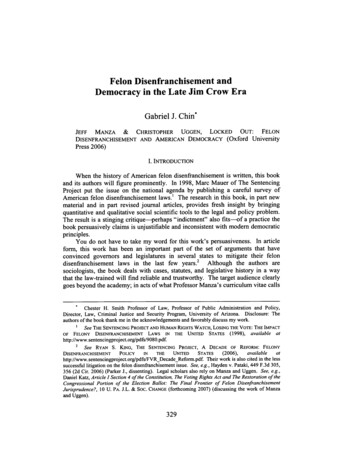

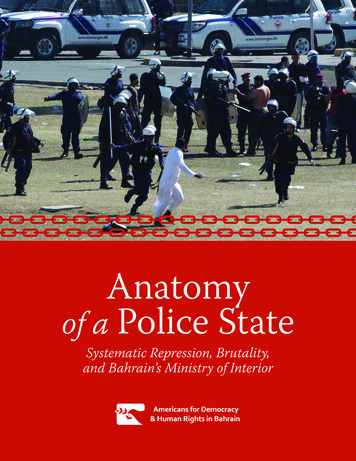
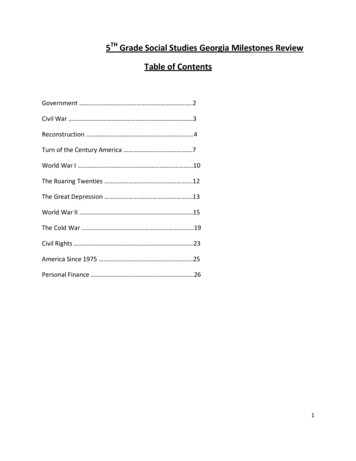
![[Page 1 – front cover] [Show cover CLEAN GET- AWAY 978-1 .](/img/13/9781984892973-6648.jpg)
